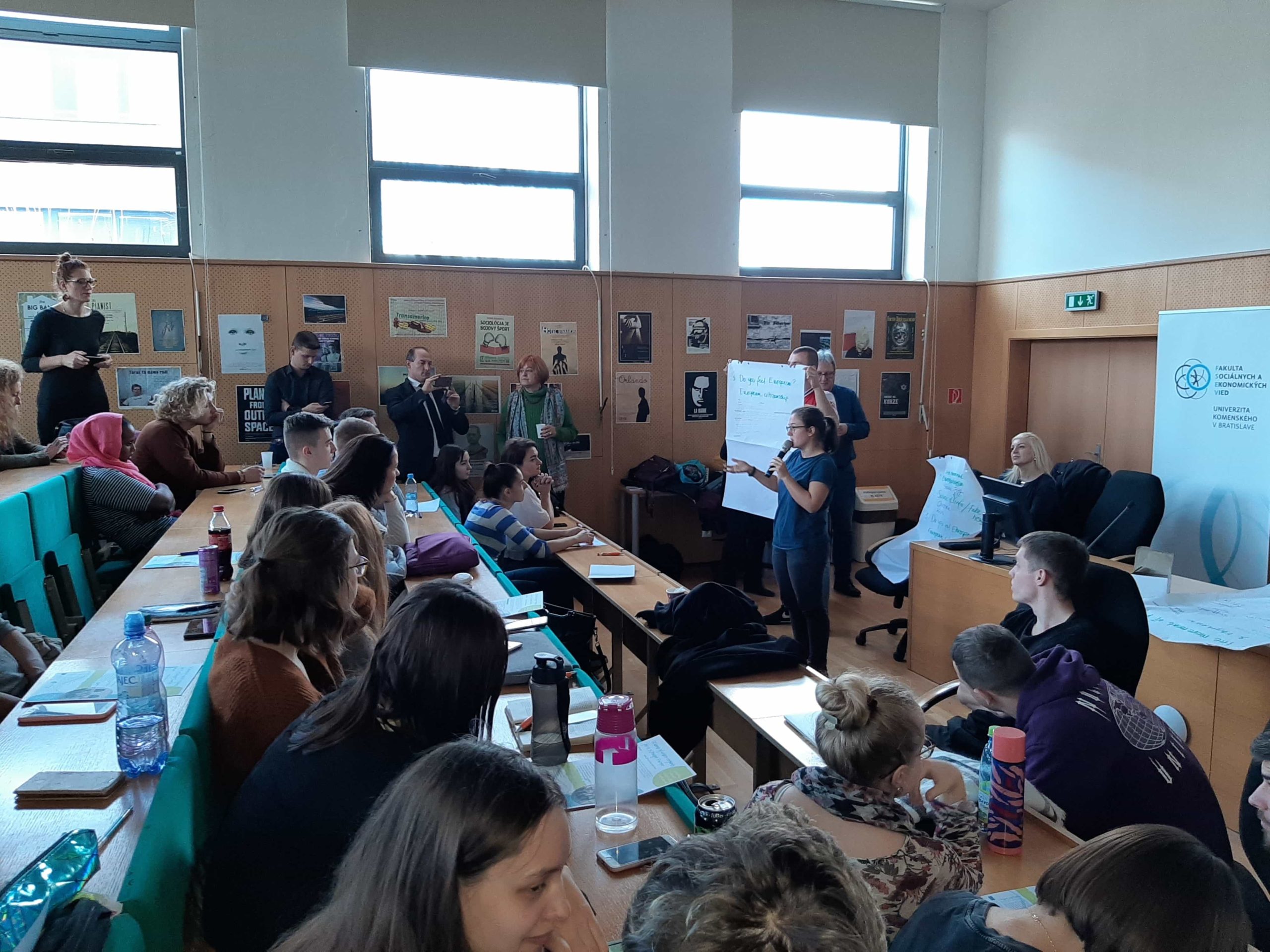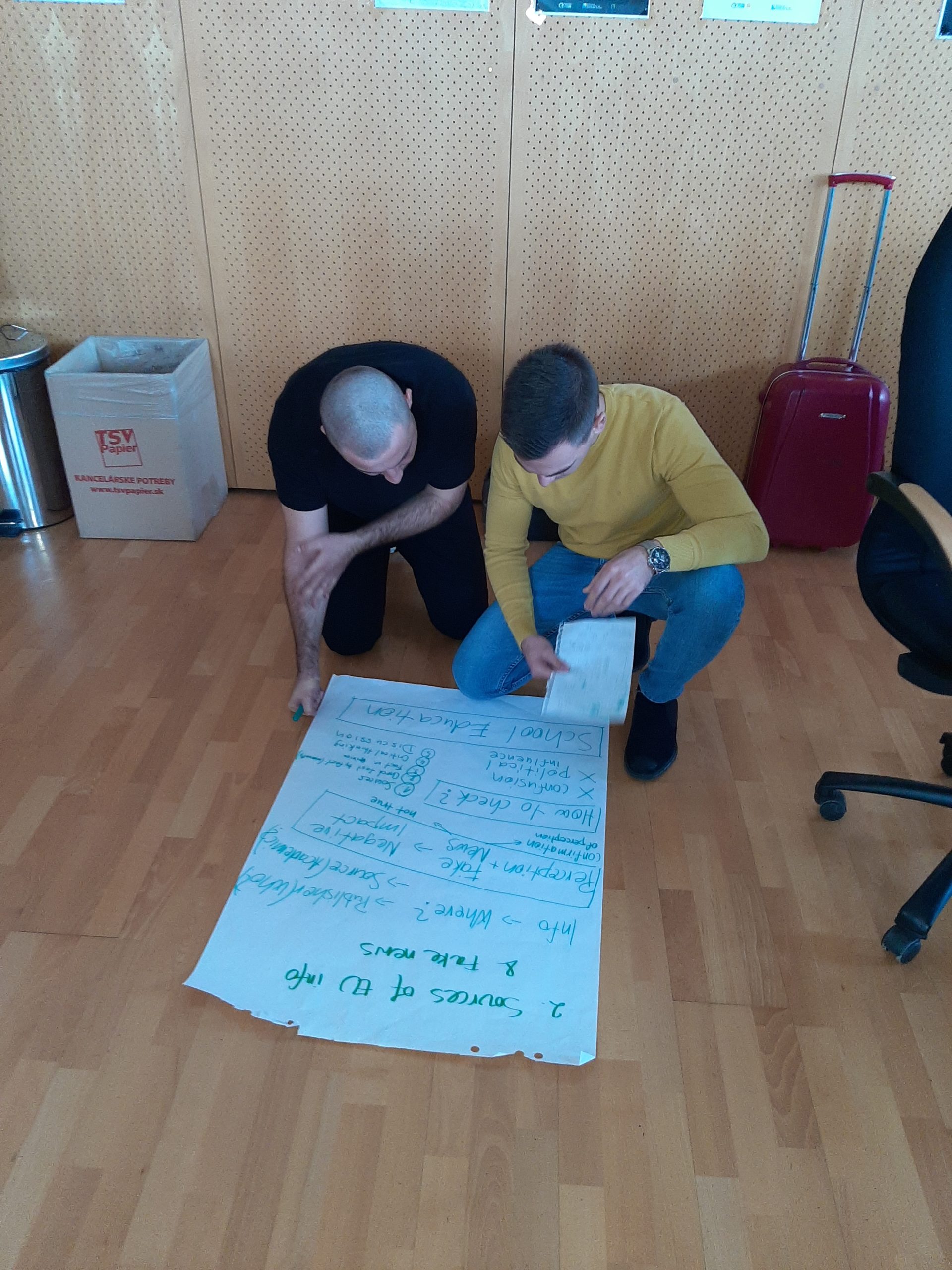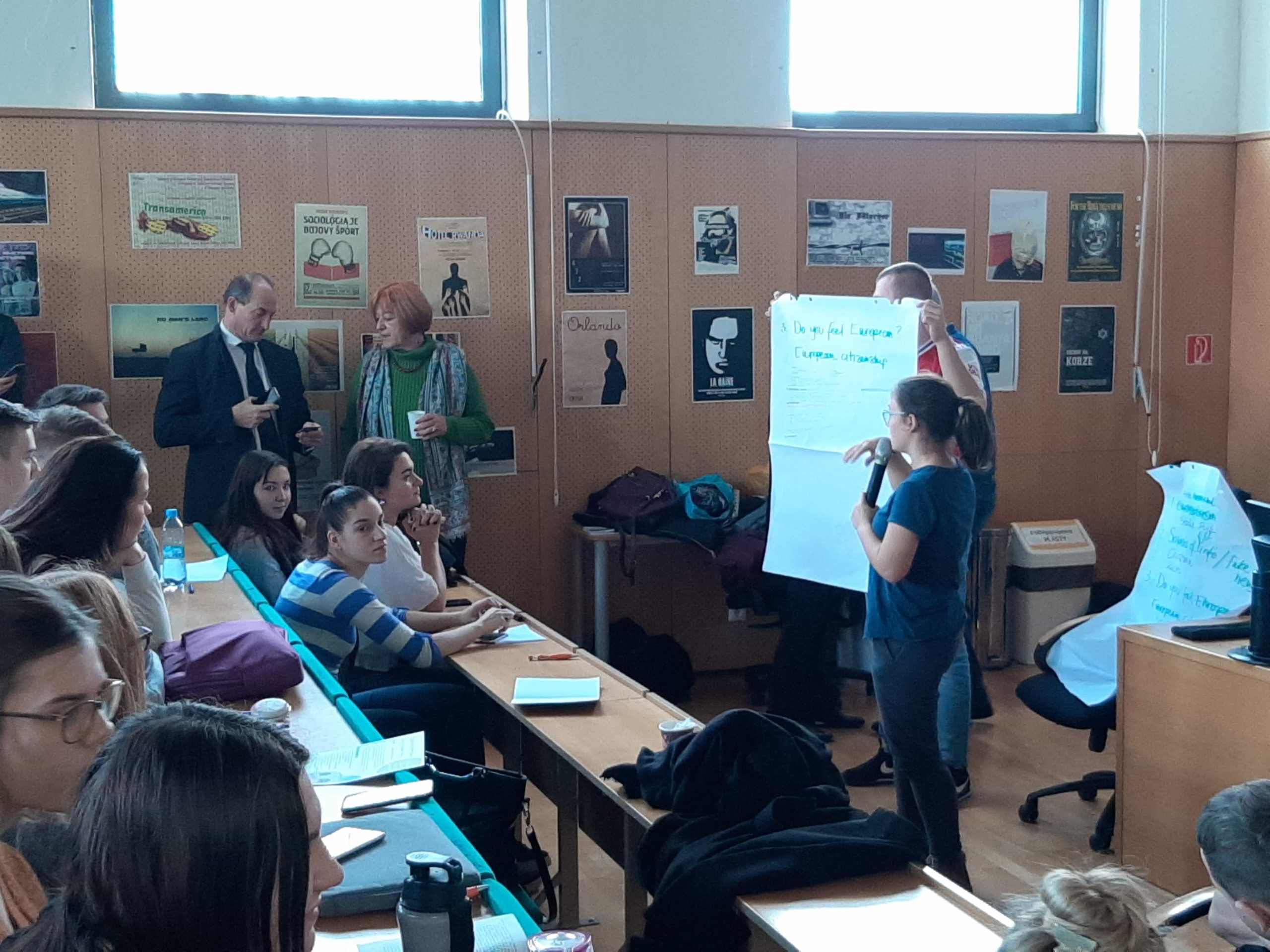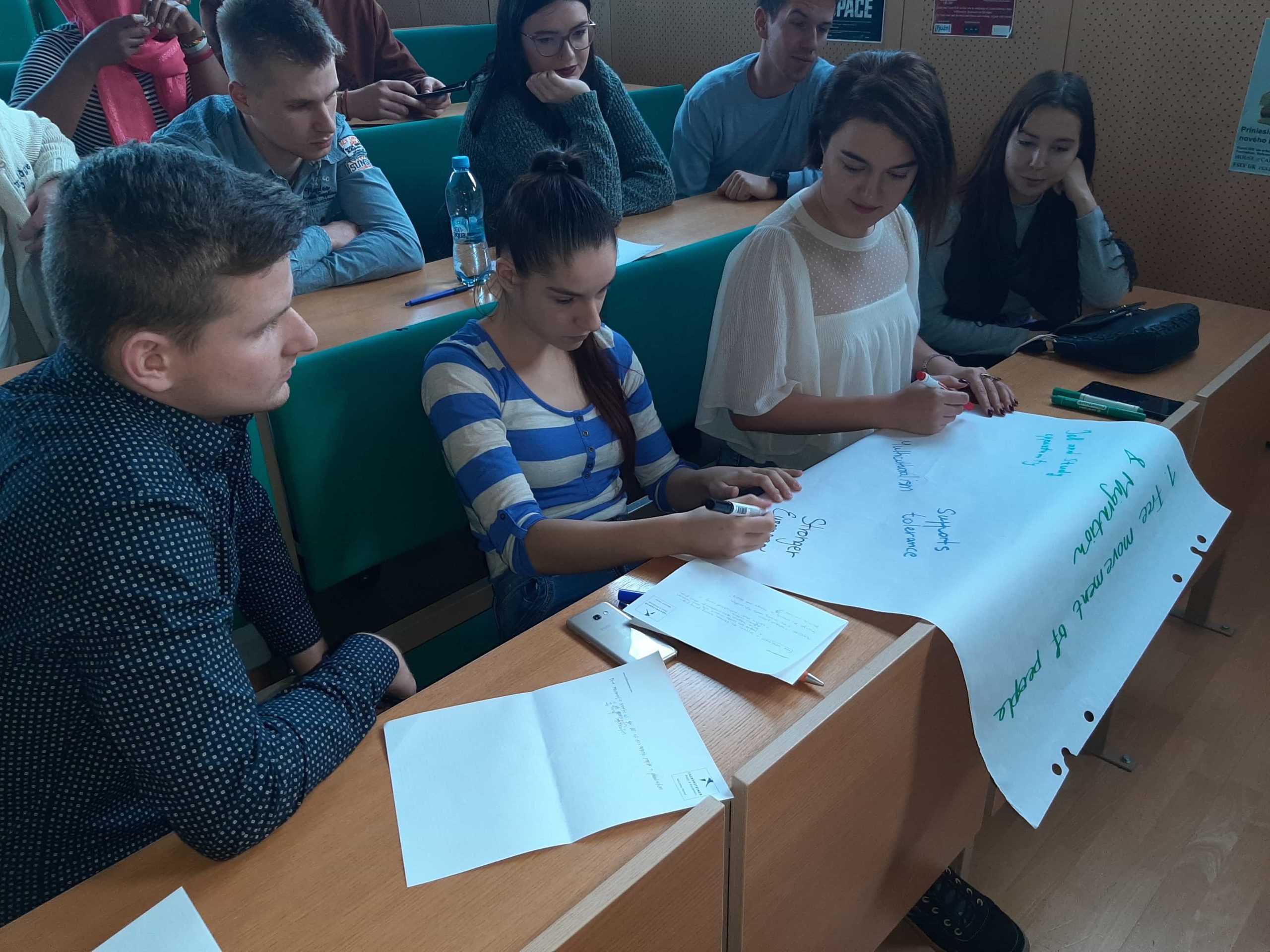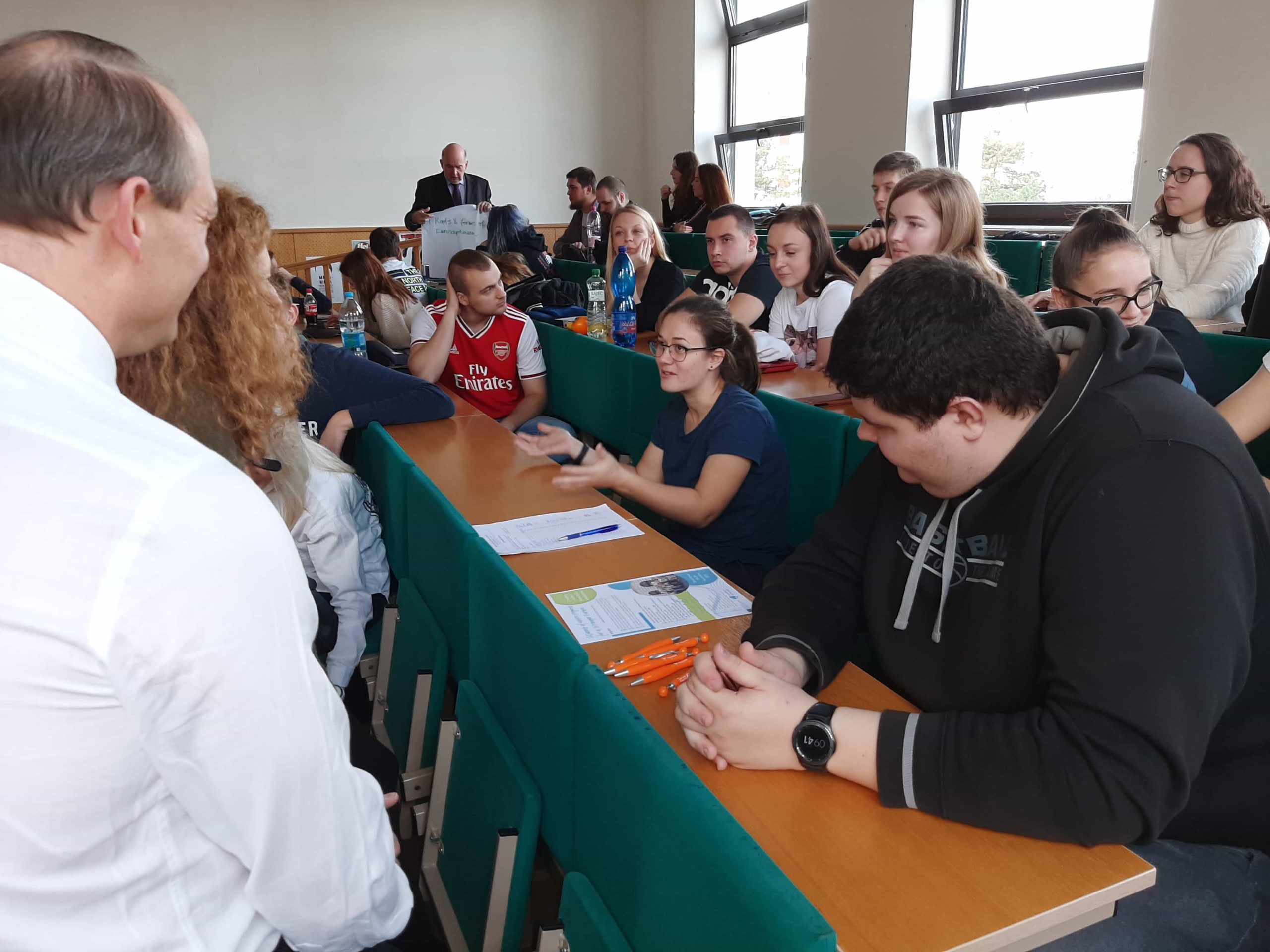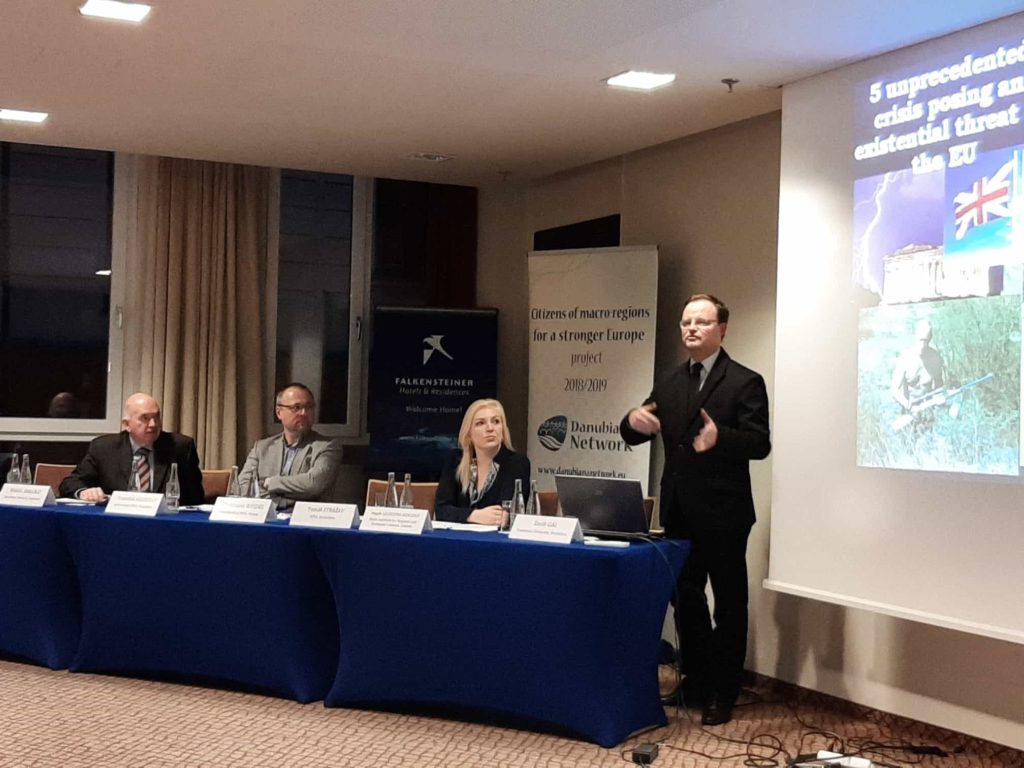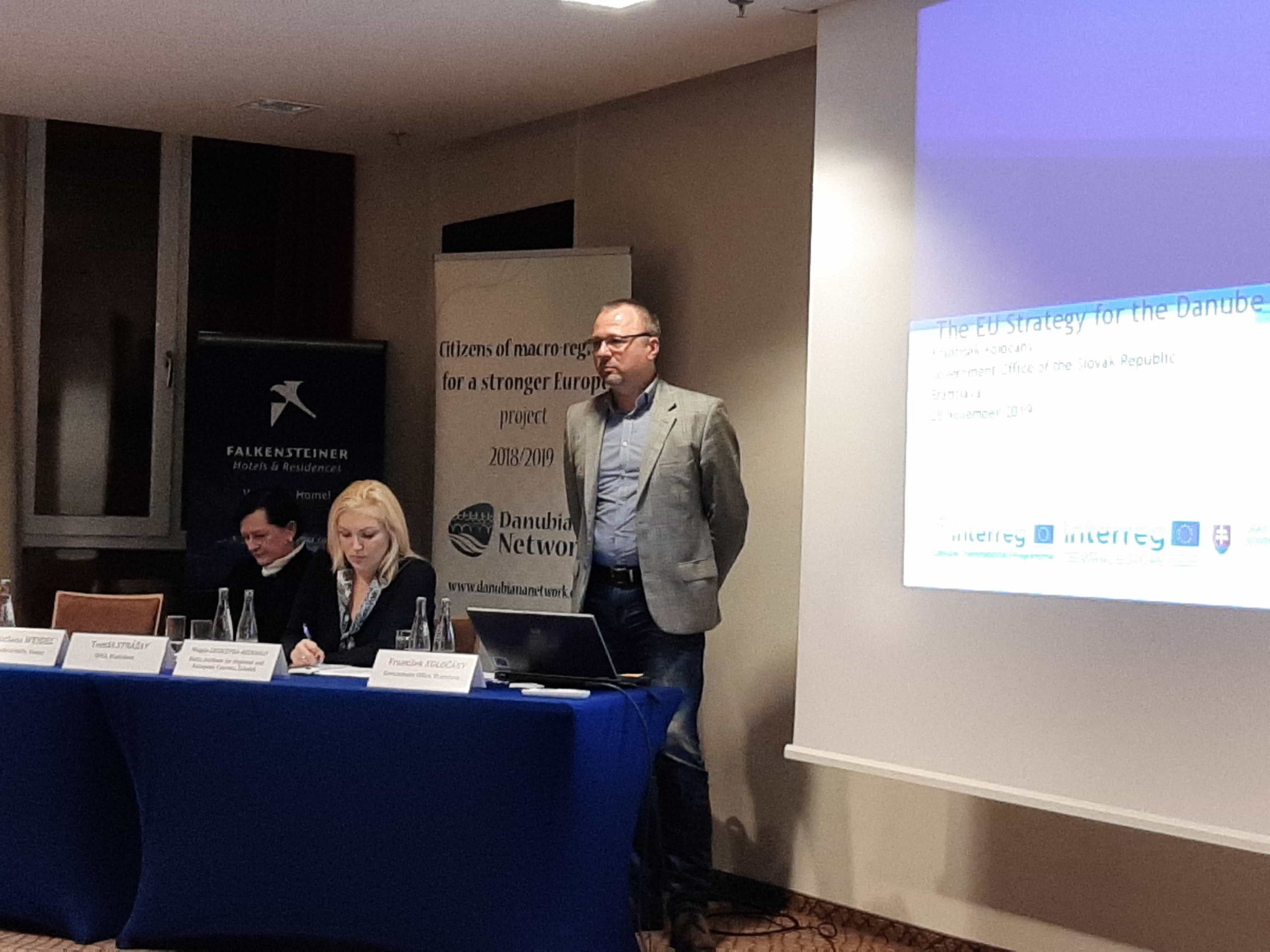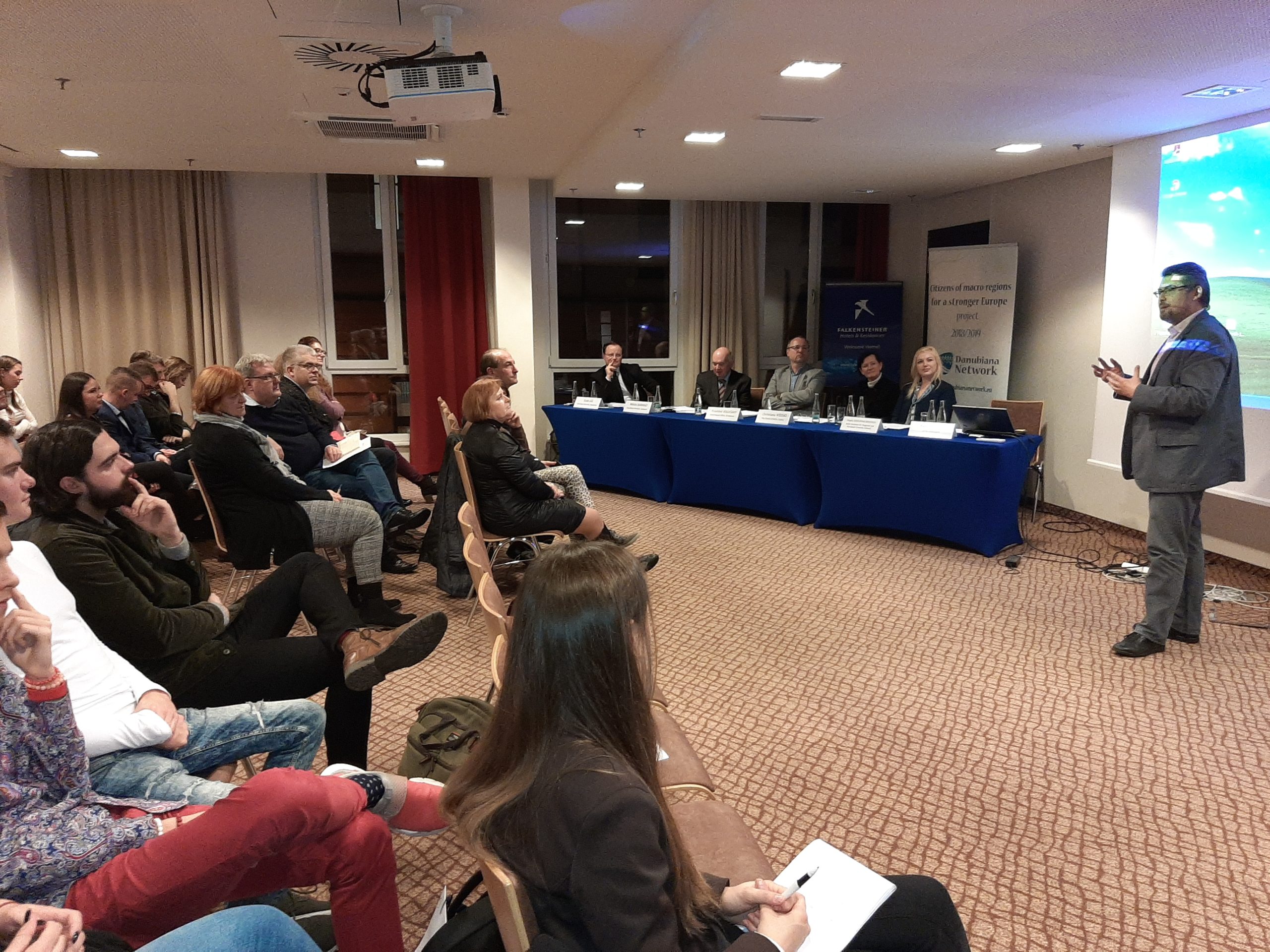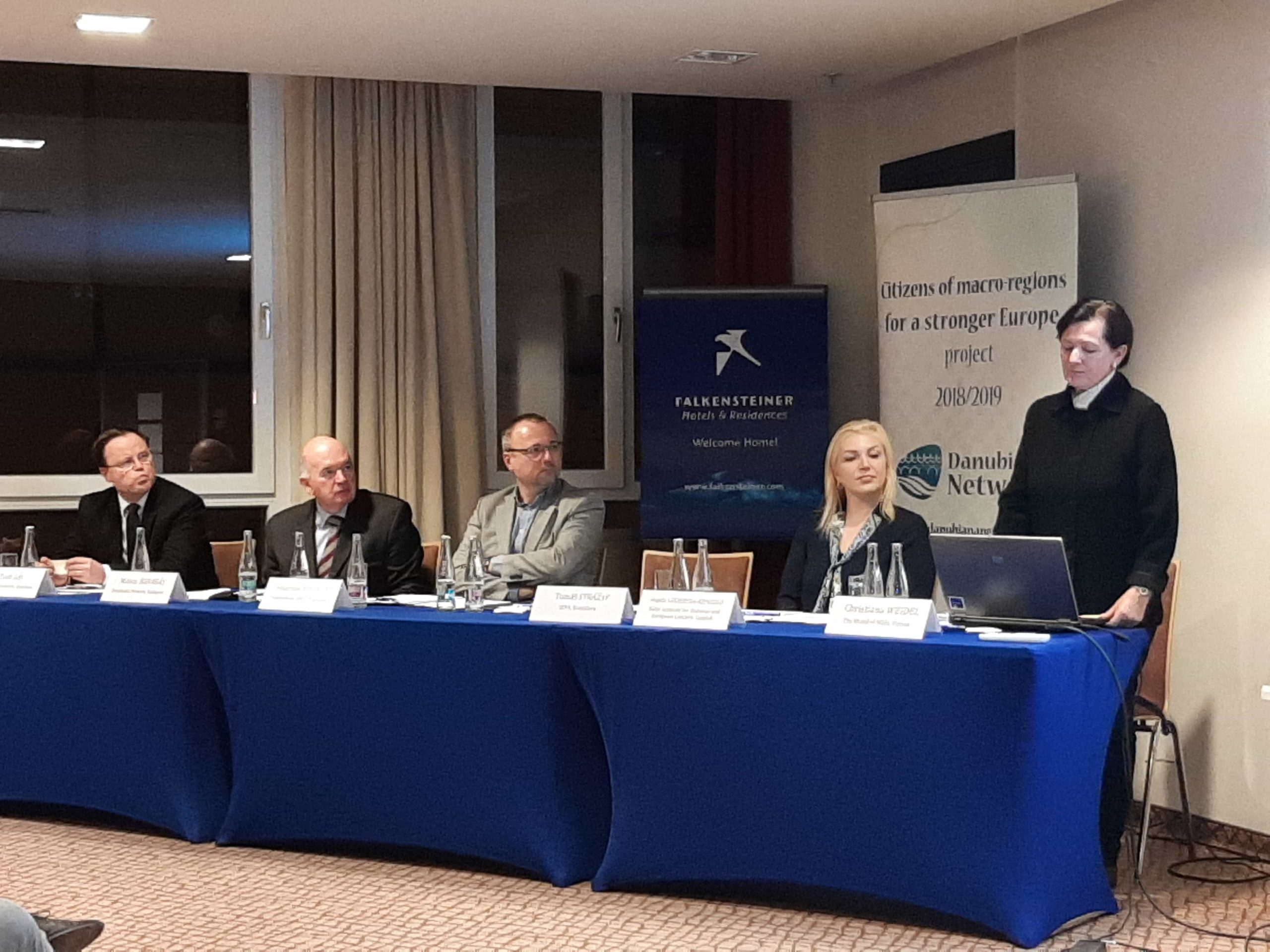Creating citizens’ friendly EU institutions
Bratislava,
28-29 November 2019
„Creating citizens’ friendly EU institutions” was the title of the concluding event of our project. It took place in Bratislava on 28-29 November 2019 and hosted by the Slovak Foreign Policy Association, our local project partner.
During out Bratislava stay two major programmes were organised:
- a well attended seminar under the title „How to make the EU institutions citizens’ friendly?” with keynote speakers from the Comenius University (Dr Zsolt Gal) and from the Slovak Government Office (Mr Frantisek Kolocany) and
- a public debate entitled „Neglecting Europe” with about 100 students of Comenius University. The vivid discussions in three parallel groups revealed divergent, sometimes contradictory views but basically in a pro-European context.
There was a general agreement that the Bratislava discussions were very timely: after the relatively recent EP elections (May 2019) and almost parallel with the setting up of the new European Commission.
During the debates a broad range of questions were raised and discussed e.g.
- Can the current „golden triangle”, the EU Council, the Parliament and the Commission meet the new challenges or a serious reshuffle is needed?
Answer: There were divergent views: some argued for a treaty refomr on the basis of the Lisbon Treaty others were in favour of a new treaty approved by an EU-wide referendum; - What are the „lessons learned” aspects of the failed Spitzenkandidat system?
Answer: It should not be repeated; what happened in 2019 undermines citizens’ trust; - Any chance to introduced a European lista to the next EP elections in 2024?
Answer: Strongly in favour. We should start lobbying for a list of 50 prominent pro-European figures already now. - How could the current non-transparent nature of the work of the European Council be changed?
Answer: This is a much needed development. We should increase public pressure to achieve it. - How can the European Citizens Initiative (collection of one million signatures) be made more efficient?
Answer: if the necessary number of signatures are collected on an issue the Commission must make a legislative proposal. This is not the case today.
The macro-regional citizens’ dimention of the debate was based on the contributions of Christiana Weidel, World of NGOs (Austria) and Magda Leszczyna-Rzucidlo, BISER (Poland) and produced vivid discussion on such issues as
- what is the raison d’être behind the mushrooming macro-regional concept and practice?
Answer: It reflects a typical top-down governments-led political attitude. The process should be consolidated and integrated it fully into the EU policy-making mechanism. - How to can the potential of the four macro-regions be used for the betterment of the European project after the 2019 EP elections?
Answer: Through exchange of information, knowledge and experience leading to coordinated horizontal actions and with broad involvement of stakeholders. - How to increase citizens’ participation in the macro-regional strategies?
Answer: It brings the necessary bottom-up approach as a complementary elements to the process. The presented Baltic Sea experience served as a well-functioning model.
The general conclusion ways that macro-regional strategies can serve as a brdige, an interface between the EU institutions and citizens. The latter should take the initiative as demonstrated by our Bratislava event.
